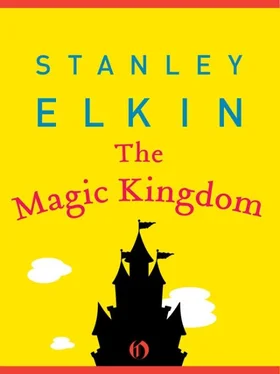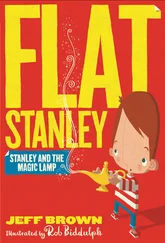Not, she felt, a lot to choose from: the sores of hysterics; the tokens of infamy, disgrace, reproach; the marks of the abnormal; the brands on criminals and slaves. (She was marked. She was a marked little girl. She would become a marked woman.) She settled for slave and turned to the nannies.
A mother’s helper’s helper. Apprenticed herself to the nannies.
Who by this time, her mother’s house almost completely populated now — she was ten, her mum had died when Nedra was four, her dad when she was nine, her stepmother had remarried the widower and would within two years be dead herself, leaving the double widower free to marry, to bring his bride, herself a widow with two children, into their little club — as solidly booked as a reputable bed-and-breakfast, not only welcomed her but probably would actively have enlisted her if she hadn’t asked first. Transferring her old reflexive rub-a-dub- dub — she’d ceased swiping at the thing on her chest, the stigma — to the babies, all those doll substitutes whom she bathed and toweled almost as roughly as she’d done herself. The nannies attempting to make her ease off, to lighten up. “Nedra, don’t flay them so.” Taking the washcloth from her, the soap, giving her lessons in the soft, trying to. “You’re not whittling wood, Nedra dear. You must be more gentle with them.” And who would probably have given up on her altogether if it hadn’t been for all those deaths, the possibilities they continued to create for the marriages of the survivors to more widows, more widowers, with their own complement of kids. (They were shortsighted — she thought of the succession of nannies that came into her mother’s home as “they,” thought there probably was never more than one nanny in the place at any one time — and didn’t understand what was really happening. It’s only the deaths of the adults, Nedra thought, that keeps things manageable here at all.) And who at last, seeing that she would never learn, did not have the touch with babies, sent her on to the toddlers. Who — if only because they were bigger, stronger, had larger lung capacities, if only because they’d been around longer, had developed a frame of reference against which they could measure their treatment in Nedra’s hands against what they had received in the less dockwalloper ones of the real nannies, if only because they had begun to develop at least the inklings of a sense of indignation — made even more fuss than the babies.
So she was off toddlers now too and (because they saw that there was nothing actually mean about her and that her fury was without rancor and was probably only a sort of dedication, and something more, perhaps, something they recognized from their own old apprenticeships, just the helpless and maybe even just wanton sign of her accession and assent to her vocation, her nanny calling) promoted (who hadn’t properly graduated either infants or toddlers) to out-and-out children.
She would have been about eleven, she would have been about twelve. There would have been, not counting herself, around eight kids in her mother’s house by now. Nine when the double widower and the new stepmother once removed had a child of their own.
This was the pool from which the nannies had to choose. And if Nedra were twelve now and had already gone through all the infants and toddlers with whom they dared entrust her, then the only out-and-out children around — the stepsister and stepbrother were just a year or two younger — were her half sister and half brother, the only other Carps in the house.
They tried her out on the half sister, but the little girl was frail and could not stand up to Nedra’s furious drubbings.
They gave her one last chance. They sent her into the bathroom to eight-year-old Gregory.
She saw him through the steam. He saw her as she moved toward him through the vaporish idiom of the damp tiles, the slippery marble. He was startled and, up to his chin in a lather of bubble bath, at a disadvantage.
“Hoicks! Yoicks and hoicks! What are you doing here?”
“I’m supposed to help bath you.”
“What, help bath me?”
“Come on, Gregory, give me the washcloth, please.”
“What for?”
“Hand it over, Gregory. I haven’t all day.”
“What are you, daft? You think I’m going to let some girl? No hope!”
“Don’t be silly, Gregory. Nanny’s bathed you for years.”
“Yeah, well, that’s Nanny, i’n’ it? You’re different pickles, ain’t you?”
“I’m your sister.” Her response to his offended modesty was obvious, even logical, but it was lame. Both knew that. There’d been little casual intimacy in this house. For all that the various issue of the strange, relay-race relationships and liaisons between their various parents lived and played together, took meals on the same schedules, had more or less the same bedtimes, shared the same clothes, lived behind the same unlocked doors, and, as they grew into it, were even at the same liberty to move at will about the same rooms and halls — her mother’s rooms, her mother’s halls — they hadn’t often, and Nedra never, run into each other in even only ordinary familial propinquity’s catch- as-catch-can dishabille. She didn’t know why, or how it had happened, but it was a little like being guests living in the same hotel. The occasional compromised glimpse of another was simply not in the cards. There were, simply, no embarrassing moments. Nedra’s forays into child management had permitted her certain privileged “views,” even a kind of hands-on experience, but she was so busily engaged at these times — so furiously, some would have said — that she barely regarded the sex of whomever it was she was bathing.
“Go on,” Gregory Carp said. “Get out of here. G’wan!”
“Not till I’ve done you.”
“Yeah, well, I’ve heard you like that sort of thing. Sorry,” he said and, partially raising himself, tried to pull the shower curtain around the tub. Nedra grabbed it away — he was her last chance, the nannies had told her so — and folded the curtain high up over the shower rod. Gregory looked at her. “Oh, yes,” he said, “a regular bruiser’s what I hear. Jack the Ripper, they call you in nursery. Scrub the spots off a leopard. You’re queen of the queer-o’s, you are, Nedra.”
“You’re wasting time, young man.” She was on her knees, her sleeves rolled. She reached into the bathtub, searching with her hands for the washcloth. She pulled it from under his thigh.
“Go on, get away from me! Stop that! You better stop that!”
“You want them to hear you scream?”
“Too right I do!”
She rubbed his arms with the soapy cloth. He suddenly lay back in the water. “Sit up,” she told him and he raised up a bit, the bubbles clinging to his chest like a soft chain mail. She scrubbed under his arm. He was ticklish. He began to giggle. “Don’t be silly, Gregory. Gregory, don’t be so silly.” Her half brother was laughing uncontrollably now. He grabbed a handful of bubbles and threw them at her. Something about their weightless trajectory amused her. She smiled and scooped up some of the bubbles herself. It was a little like trying to throw feathers. Indeed, all of this was like some weightless, glorious pillow fight. They slapped at each other with thousand-faceted airy boluses of bubble bath. The stuff was on her clothes, on her face, in her hair. Then her brother pushed himself all the way up in the water and began splashing her. He shoved sheets of it at her, pushing the water away from his chest with his palms.
Which was when she first noticed it, saw it.
It was, of course, the thing, the port-wine stain, the partial ring, the costume-jewelry crescent, the iridescent purple flaw brand bruise stigma, the hysterical abnormal infamy skin token. He had one too. He was marked too. And now she saw what it really looked like. It looked like a lip.
Читать дальше












